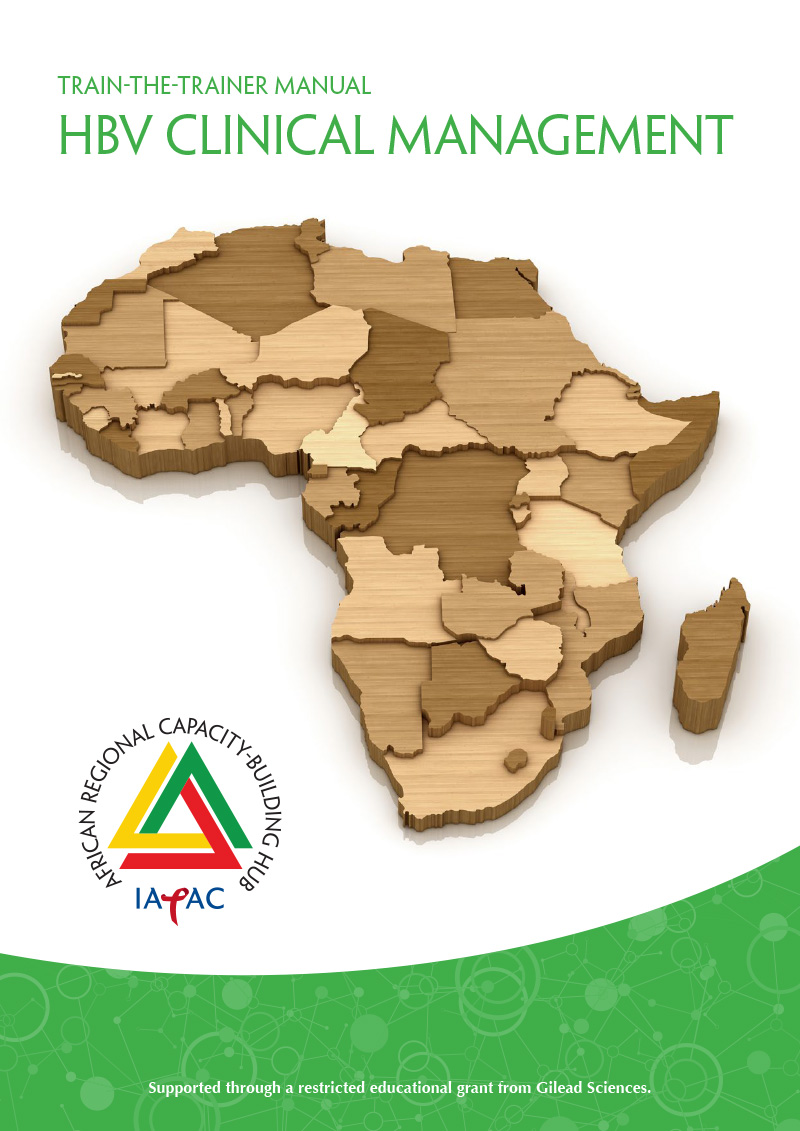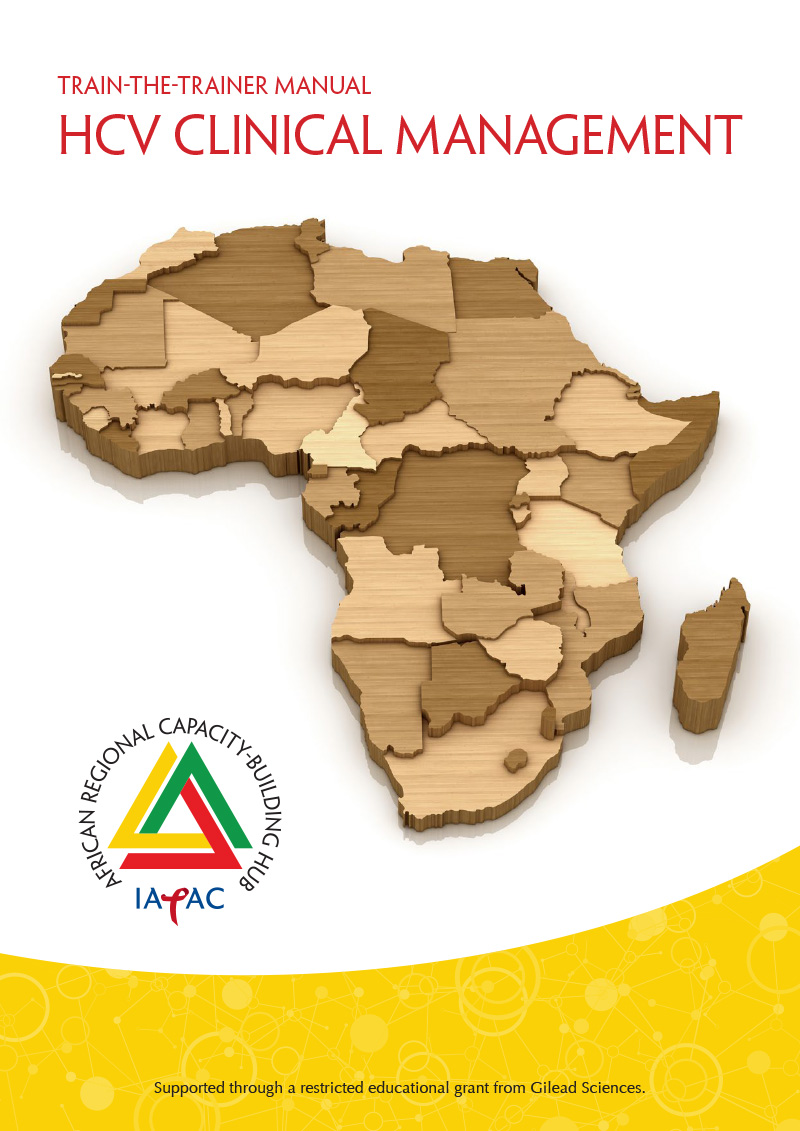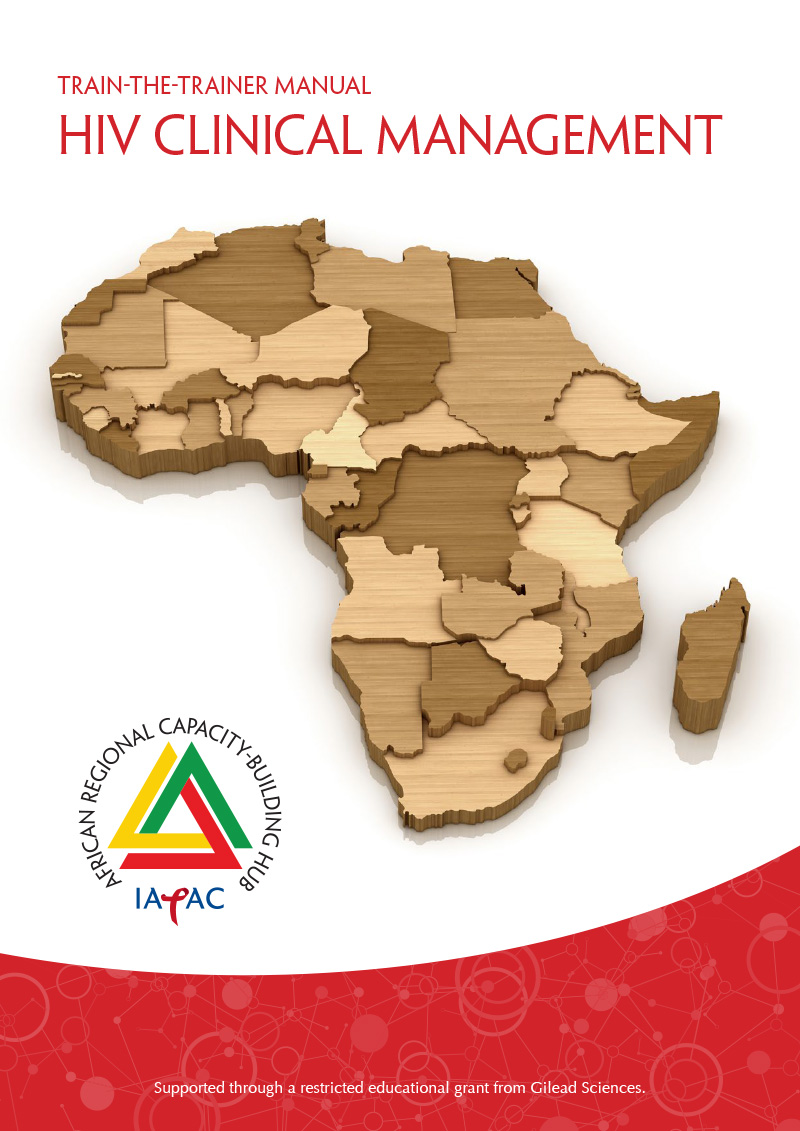Strengthening Clinician Capacity to Manage HBV, HCV, and HIV in Africa
HIV and viral hepatitis impose a substantial health burden on sub-Saharan Africa!
Nearly 26 million people are living with HIV in the region, yet only 11 million are on treatment. HBV is highly endemic in the region, yet access to vaccination and treatment is limited. With an estimated 32 million people infected with HCV, sub-Saharan Africa has the highest burden of HCV disease in the world, yet most HCV-infected individuals lack access to treatments that can cure their disease. Building clinician capacity to optimally screen for, test, and treat people living with HIV and/or HBV and HCV is a public health priority at the center of the IAPAC African Regional Capacity-Building Hub’s mission.
The International Association of Providers of AIDS Care (IAPAC) established its African Regional Capacity-Building Hub with a mission to strengthen clinician capacity around HBV, HCV, and HIV clinical management. The Hub’s work is advanced in collaboration with national, regional, and international stakeholders, and through a restricted educational grant from Gilead Sciences.
The Hub is aligned to assist with ongoing efforts to expand access to the HBV, HCV, and HIV screening, testing, prevention, care, and treatment on the African continent. The Hub’s 2015-2020 goals include:
- Supporting countries to integrate World Health Organization (WHO), IAPAC, and other relevant normative guidance, including national guidelines, to strengthen their HBV, HCV, and/or HIV responses;
- Increasing clinician capacity to implement HBV, HCV, and/or HIV normative guidance, along their respective continua, in specialized and primary care settings, based on needs specifically determined at clinical sites; and
- Promoting continuing education and metrics-based certification as mechanisms to trigger continuing quality improvement, provide quality assurance, and address health workforce retention concerns.
IAPAC is the Hub’s Secretariat, and its association and academic partners are the International Association for the Study of the Liver (IASL), the Makerere University College of Health Sciences (Kampala, Uganda), and the University of Cape Town’s Division of Hepatology (South Africa).
Following are IAPAC resources to plan, coordinate, and conduct HBV-, HCV-, and HIV-themed in-service clinical management trainings based on IAPAC African Regional Capacity-Building curricula. Click on the relevant link below to download the required documentation.

HBV Downloads
Handouts
Training Evaluation Form

HCV Downloads
Training Agenda
Handouts
Training Evaluation Form

HIV Downloads
Handouts
Training Evaluation Form

HBV Downloads
Training Agenda
Train-the-Trainer Manual
Handouts

HCV Downloads
Training Agenda
Train-the-Trainer Manual
PowerPoint Slide Set
Handouts
Training Evaluation Form

HIV Downloads
Handouts
Training Evaluation Form
e-Library
HBV
Guidelines
- Guidelines for the Prevention, Care, and Treatment of Persons with Chronic Hepatitis B Infection. WHO, March 2015
- Management of Chronic Hepatitis B Virus Infection. EASL, 2017
- Chronic Hepatitis B: Update 2009. AASLD, September 2009
Key Resources
- World Health Organization (WHO)
- European Association for the Study of the Liver (EASL)
- American Association for the Study of the Liver (AASLD)
HCV
Guidelines
- Guidelines for the Screening, Care, and Treatment of Persons with Hepatitis C Infection. WHO, April 2016
- Recommendations on Treatment of Hepatitis C 2016. EASL, July 2016
- AASLD-IDSA Recommendations for Testing, Managing, and Treating Adults Infected with Hepatitis C Virus. AASLD/IDSA, August 2015
Key Resources
- World Health Organization (WHO)
- European Association for the Study of the Liver (EASL)
- American Association for the Study of the Liver (AASLD)
HIV
Guidelines
- Guidelines for Optimizing the HIV Care Continuum for Adults and Adolescents. IAPAC, November 2015
- Guideline on When to Start Antiretroviral Therapy and on Pre-Exposure Prophylaxis for HIV. WHO, September 2015
- Consolidated Guidelines on HIV Testing Services. WHO, July 2015
- Consolidated Guidelines on HIV Prevention, Diagnosis, Treatment, and Care for Key Populations. WHO, July 2014
- March 2014 Supplement to the 2013 Consolidated Guidelines on the Use of Antiretroviral Drugs for Treating and Preventing HIV Infection. WHO, March 2014
- Consolidated Guidelines on the Use of Antiretroviral Drugs for Treating and Preventing HIV Infection. WHO, June 2016
- HIV and Adolescents: Guidance for HIV Testing and Counselling and Care for Adolescents Living with HIV. WHO, November 2013
- Guidelines for Improving Entry into and Retention in Care and Antiretroviral Adherence for Persons with HIV. IAPAC, June 2012
Key Resources
- World Health Organization (WHO)
- Joint United Nations Programme on HIV/AIDS (UNAIDS)
- International Association of Providers of AIDS Care:
www.iapac.org
www.myHIVclinic.org
www.without-exception.org - Southern African HIV Clinicians Society





